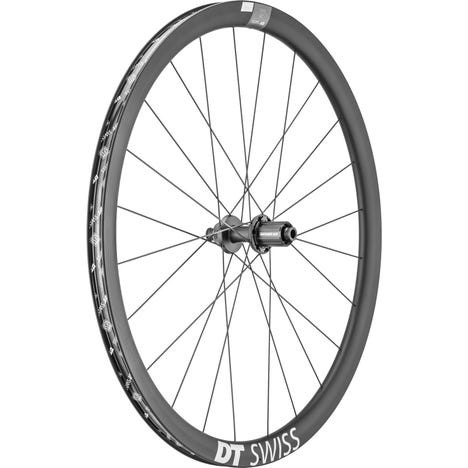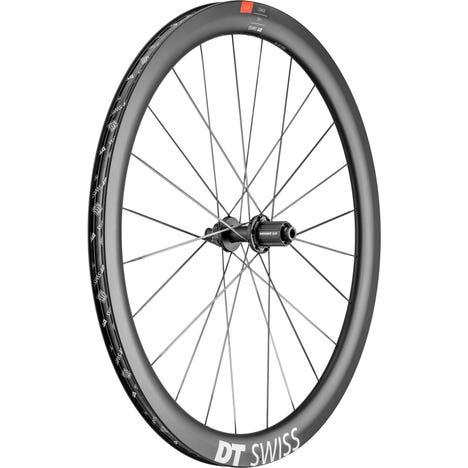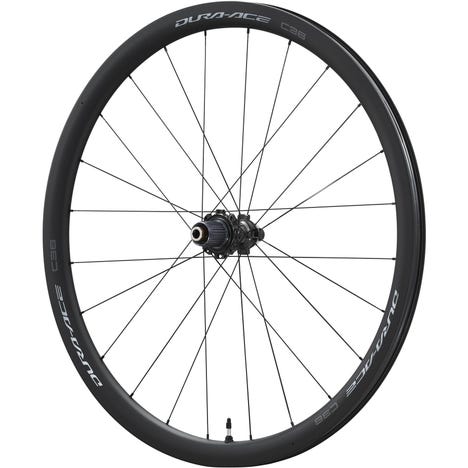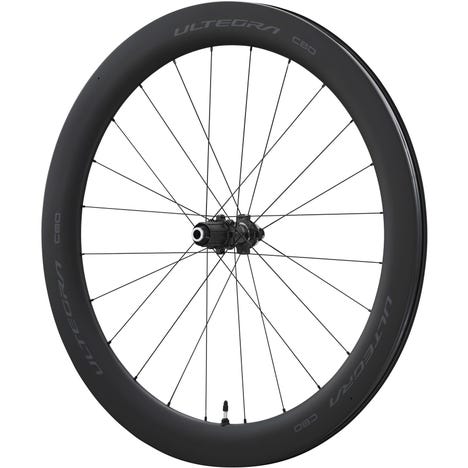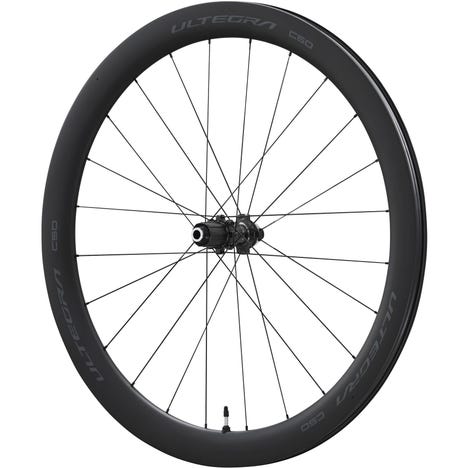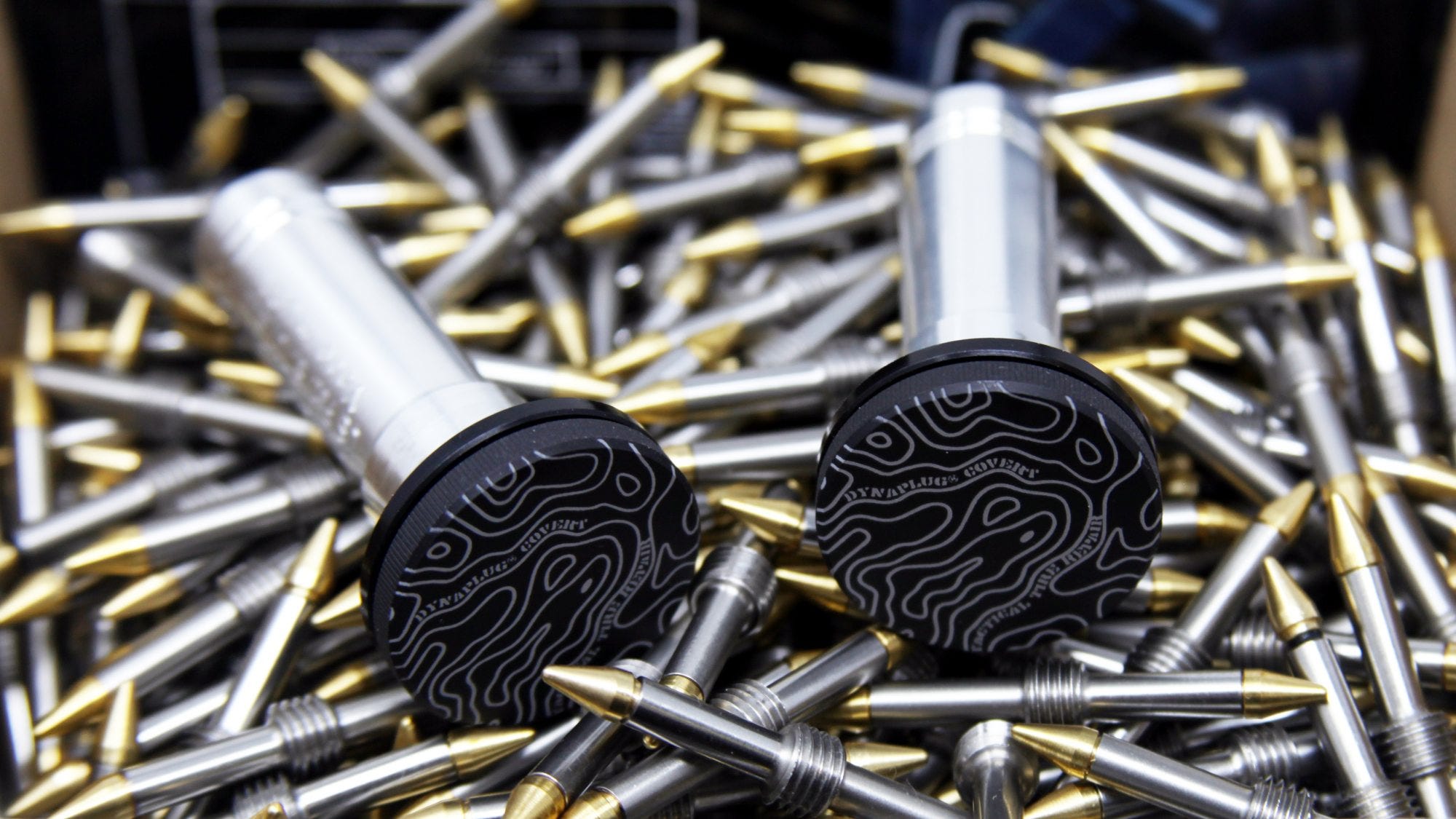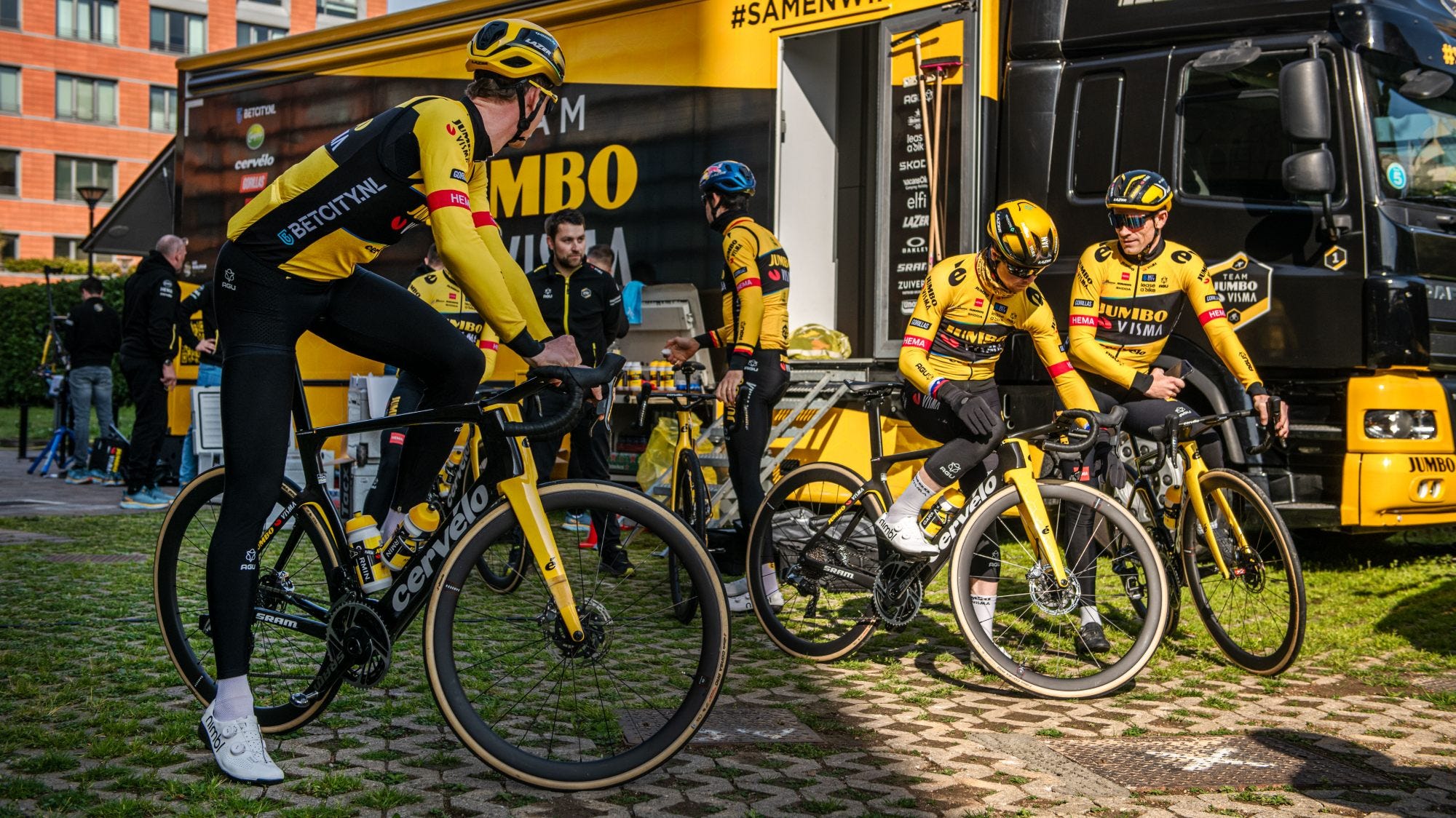So you want some carbon wheels? Here's our buyer's guide
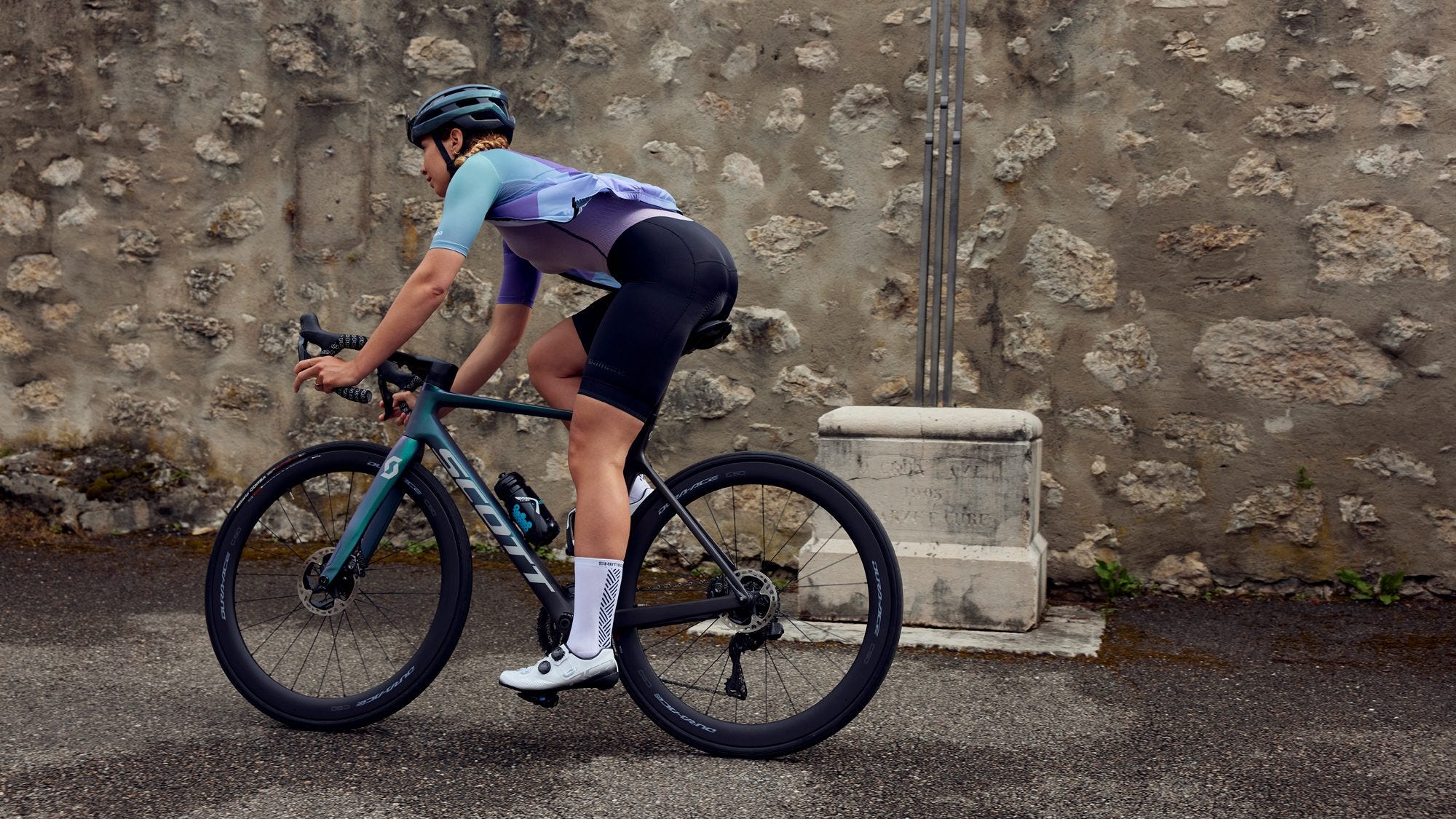
There are a lot of great things about carbon wheels. They're light, they're aerodynamic, they look great and, yep, they make a really cool 'whoosh, whoosh' sound as you ride along. Carbon wheels have been a thing in road cycling for at least two decades now and although the wheels you can get today look ostensibly similar to the ones ridden back then, the technology has been refined over and over again through the years making carbon wheels a practical (and durable) every day choice rather than something you'd only stick in the bike for race days.
The main thing to change in the last couple of years is the move from rim brakes to disc brakes on road bikes. With rim brakes, every time you brake you're wearing the carbon rim away slightly which means that depending on how much you ride there is a a clear and finite lifespan to that wheelset. Not that most of us ride enough for that to be a real concern in the short term, but the beauty of disc brakes is that braking wears the rotor, not the rim, which is an easily replaceable part and the lifespan of the wheel is theoretically far longer (remember though, if you crash it doesn't matter whether you're riding rim or disc brakes as gravity forgives nobody...).
Another change is that far, far more road bikes come specced with carbon wheels as standard these days than used to be the case. In fact, many of the major bike brands have their own in-house wheel brands as well, meaning that carbon wheels are far more ubiquitous now than ever before. But that doesn't mean that there aren't plenty of opportunities to upgrade, so here are some things to think about if you're in the market for a shiny, new set of wheels.
Rim Depth
The first thing you notice when you see a bike with carbon wheels is rim depth - and that's the first thing to think about here: what your bike is going to look like. As much as we all like to pretend that our bikes are functional machines solely focused on performance, the reality is that we all want a bike we think looks nice and how we feel about a bike will absolutely have an impact on how much we want to ride it. So dont worry, if you think that 60mm deep-section race wheels look better than 32mm climbing wheels, that's okay, and it's a perfectly valid part of the decision-making process.
That said, pure aesthetics is absolutely not the only thing you need to think about. Performance - and perhaps more importantly practicality - is another important factor. Although all wheel manufacturers like to make it sound like rim depth and stability isn't an issue, in reality a 60mm deep set of wheels will change the handling of your bike compared to a shallow set - especially when it's windy. Shallower section wheels will be more stable in crosswinds, and if you like a bike where the front end doesn't twitch then that's the way to go. On the other hand, deeper wheels are demonstrably faster on all terrain other than really steep climbs, so if you're after pure speed for racing or KOM hunting then you'll want to go that way.
Rim Width
This is something that's only really become a choice to make over the last few years. To a certain extent it's still a non-decision as most road wheels have internal widths between 22-25mm, but it will certainly have an effect on what tyre width you can use with the wheels. The vast majority of carbon disc brake wheels these days are designed for a 28mm tyre minimum. You also need to check the clearance on your frame. For the most part, the wider the rim the more generous the profile of a tyre will be, and the last thing you want is your chosen wheel/tyre combination rubbing on the inside of your chainstays.
One other thing related to rim width is whether your rims are hooked or hookless. Hooked is the classic clincher profile, with hooked sections inside the rim walls for the bead of the tyre to hook onto. Hookless is exactly as it sounds - a wheel without those hooked rim sections - and while that will make the wheels lighter, it will also limit tyre compatiblity as there are still some manufacturers that dont recommend their tyres for use with hookless rims.

Weight
Weight is an interesting thing, because if you want to go fast being aerodynamic is - in almost every instance - significantly more important than being light. So if going quickly is your main goal (and you dont live in the mountains) then deep section wheels are exactly what you'll want. But if you're a weight weenie and basically trying to get the lightest bike you can, shallow wheels will be lighter in almost every case as they use less material.
Where you need to get comparing is looking at wheels from different brands, as certain manufacturers might have, say, a 50mm wheel that's lighter than another brand's 40mm wheel so you need to do some comparing to find exactly what you're after. But if you've decided what brand you want - and let's use Shimano as an example - the 36mm Dura-Ace wheels are lighter than the 50mm which, in turn, are lighter than the 60mm.
Serviceability
Of all the things we've talked about here, serviceability is probably the one that's given the least thought in the wheel-buying process. That's largely because it's not exactly the sexiest aspect of buying something, but that doesn't mean it's not important. While those wheels you bought online from China might seem like a great deal, when you need the bearings serviced or a spoke replaced it's vital to know whether getting hold of those things is easy (or even possible).
That's the beauty of brands like DT Swiss and Shimano. Both are not only big brands with multiple service locations, but all the spares are available and your local mechanic wont have to do some heavy revision the night before taking it apart. In fact, Shimano has well over 100 shops registered as official Shimano Service Centres in the UK and DT Swiss has a service centre that you can send your wheels to as well, so neither brand will leave you without wheels for months while those spare parts are shipped from overseas.
If you're in the market for some nice, new carbon wheels we have multiple brands on Freewheel like Shimano, DT Swiss and Profile Design. While you're here, why not take a look at some of the latest tubeless tyres and technology as well?

